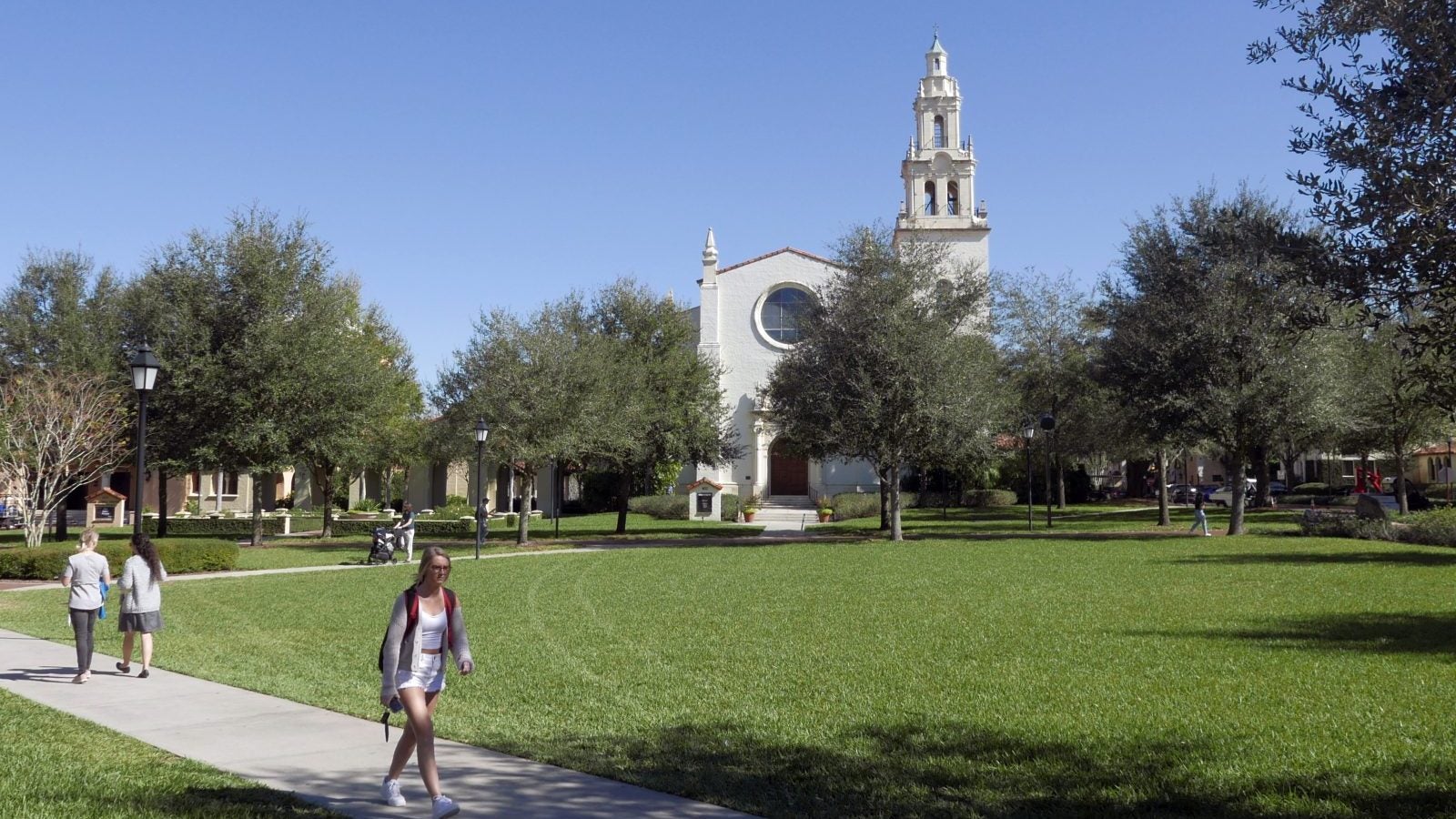The 2008 recession completely changed what students majored in. Will coronavirus?
The Great Recession led to big changes in what US college students chose to study. The downturn, which started in 2008, led a shift towards more job-oriented majors, at the expense of the humanities and social sciences. After remaining relatively stable over the previous decade, the share of all students majoring in the humanities or the social sciences dropped from 29% in 2008 to 23% in 2018. Research shows that students often shift towards more career-oriented degrees when the job market is not looking good.


The Great Recession led to big changes in what US college students chose to study. The downturn, which started in 2008, led a shift towards more job-oriented majors, at the expense of the humanities and social sciences. After remaining relatively stable over the previous decade, the share of all students majoring in the humanities or the social sciences dropped from 29% in 2008 to 23% in 2018. Research shows that students often shift towards more career-oriented degrees when the job market is not looking good.
If this economic slowdown follows past ones, higher education policy economists and experts say there could be another push towards majors—e.g. engineering, finance, economics, and nursing—that lead to higher-paying, stable jobs.
Since the Great Recession, the fastest-growing fields of study have been health sciences professions and related programs, natural sciences and mathematics, and computer science and engineering. Health professions jumped from 7% of all US majors in 2008 to 12% in 2018. Meanwhile, computer science jumped from 8% to 11%.
“There will be some students changing their major going forward, and part of that is going to kind of develop over the next several months in terms of what we see happening,” says Brad Hershbein, economist at the W.E. Upjohn Institute for Employment Research. And even if students don’t change majors, they may add a second major, a minor, or coursework grounded in these job-oriented fields.
The interest is due in part to students feeling more confident that those majors will allow them to pay back their tuition more quickly than if they major in a subject like the humanities, says Kevin Stange, associate professor of public policy at the University of Michigan.
Job-oriented majors often lead to well-paying jobs after graduation. Among entry-level, college-educated workers, STEM majors earn about $43,000 annually, health majors $41,000, and business majors $37,000, according to numbers from Georgetown’s Center on Education and the Workforce. Meanwhile, those majoring in the arts, humanities, and liberal arts earn about $29,000 annually.
While majoring in the humanities does often pay off in the long run, many students want to be able to land a steady job from the start. “A lot of students are very wary of going into something with a lot of uncertainty in the first few years out,” says Hershbein. In addition, he says not all students, particularly, low-income, first generation students, can afford to stay at home after college without a job. Their families often need them to be financial contributors immediately.
It’s also possible that coronavirus may not impact major choice like it did in the last recession. The economy is essentially on pause, so there’s a supply-and-demand shock simultaneously, according to Nicole Smith, chief economist at Georgetown’s Center on Education and the Workforce. It’s difficult to know how drastic the long-run consequences of this downturn will be. It might be a short blip or a prolonged depression. If it’s the former, it might have little impact on the popularity of majors, according to Smith.
For the past several decades, there’s been a long-term trend of students shifting towards job-oriented degrees largely due to jobs requiring more postsecondary education, she says. The changing nature of majors is also driven by changing demographics. Women, who now make up the majority of the college-educated workforce, are increasingly turning away from the humanities, which they had initially been largely confined to. In addition, the share of lower-income students has increased dramatically in college, due in part to not having as much family income or wealth to rely on. “So the need to find a job that’s going to be self-supporting right away may be more salient,” says Hershbein.
Unprecedented times
While the last recession can be a helpful guide for knowing what will happen in the future, experts point out there’s also a lot of uncertainty on how this one will play out. Other factors in higher education that are moving at the same time could also impact student’s choices of major.
“I think this recession is just going to hit higher education just much, much more intensely than we’ve seen in prior recessions,” says Stange.
With the potential loss from out-of-state and international students, that could put more pressure on institution’s finances, he says. Public universities may also be hit hard by state budget cuts. As a result, colleges may not offer as many sections in some of the more expensive fields that come with lab equipment costs, such as engineering, for instance. That could indirectly push students to less expensive fields of study, like English, sociology, or history.
If universities shift to online courses, that could also impact what students study, says Stange. Some institutions have talked about putting their introductory large lectures online this fall, he says. These online courses, which are often the first exposure to what the field of study is like, could influence what students chooses to study.
More broadly, big changes in society can affect people’s choice about what careers to pursue—and what to major in. For instance, doctors, scientists, and nurses are seen as some of the heroes of this crisis, which could inspire others to follow in their footsteps.
“Big things sort of captivate people’s imagination and spirit,” says Stange. “I don’t have any basis for knowing how these things have affected people’s majors. That’s sort of hard to quantify, hard to answer, but that’s some kind of big picture thing that I do wonder.”